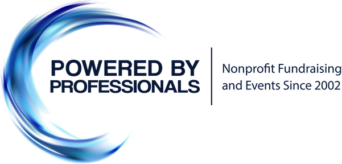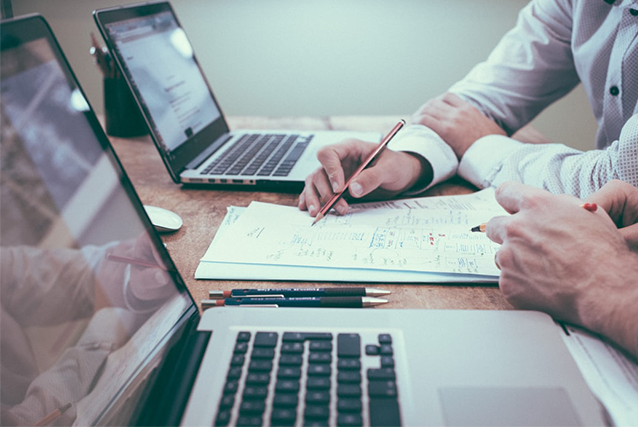Are you feeling stuck in an unproductive work cycle? Have you been working hard with little to no results? It may be time to switch your focus from working hard to working efficiently. Here are some tips on how to work more efficiently so you can get the most out of each day, without sacrificing quality:
Find Your Peak Hours and Create a Routine – Everyone has different peak hours in terms of productivity; some prefer early mornings while others prefer late nights – find what works best for you based on when you feel most productive and plan your schedule accordingly! It is important to stick to a routine because it helps the body and mind adjust and stay focused on the task at hand. When creating your daily routine, make sure you are accounting for breaks throughout the day, and make sure you schedule them in advance. Studies have shown taking short 10-minute breaks every hour or two helps boost productivity by clearing our minds of any clutter we might be carrying. Even a 5-minute break for coffee/tea/stretching goes a long way.
Reduce Decision Fatigue and Get Rid of Distractions- Decision fatigue is real; when we spend too much time making decisions throughout our day, our brains become overwhelmed, which results in poorer decision-making skills over time decreased productivity overall! To reduce decision fatigue try assigning specific days for certain types of tasks such as Mondays for research projects or Tuesdays for admin-related duties so that you don’t waste energy thinking about what needs doing next every single hour! It’s easy to get sidetracked when there are distractions around us: notifications from social media accounts, emails from coworkers, etc. To help alleviate these distractions consider turning off any non-essential notifications or logging out of social media accounts while completing important tasks that require full attention. Find a space free from potential disturbances.
Organize Your Environment and Plan Ahead – Having an organized workspace is key to efficient workflow. Clutter can cause distractions and slow down tasks, while a clean desk can help you stay focused on the task at hand. Consider investing in organizational tools such as file folders, labels, and sorting systems that can help keep things tidy and make it easier for you to locate important documents when needed. When possible, schedule everything as far in advance as you can. Create detailed agendas and timelines for each event or fundraiser, with clear deadlines for each task. This will help ensure that no crucial elements fall through the cracks. You may want to create a master calendar of events so you can easily keep track of all upcoming activities or use project management software like Asana or ClickUp to stay organized.
Prioritize Your Tasks and Make Lists– Another key ingredient for efficient workflow is time management. Not all tasks within a project are created equal – some may be more important than others, with higher priority given to deadlines or anticipated deliverables needed sooner than others. Focus on higher-priority tasks first as they tend to require more effort or creativity.
Making daily lists can help keep you organized and on track during the day. When making lists, try breaking big tasks into manageable chunks that can be completed throughout the day or week. After each task is completed cross it off your list for a sense of accomplishment and progress!
Know Your Limits, Delegate, and Utilize Your Network: It can be tempting for ambitious professionals to take on too much work—but this won’t serve anyone well in the end! Make sure you know your capacity limits before taking on any new projects; otherwise, you may risk burning out from taking on too much too soon. Asking for help does not mean failure! Many successful people understand delegating certain responsibilities frees up more time for other more pressing matters resulting in higher efficiency overall instead of trying to tackle everything yourself unnecessarily. When it comes to managing multiple clients at once or juggling numerous events within a short space of time this could easily become an issue…so set realistic workload expectations from the start and communicate these clearly with everyone involved in order to avoid needless stress (as much as you can) further down the line! The more people you have helping take on tasks related to an event or campaign, the more efficiently it will run.
Make Use of Technology Chances are there’s already an array of helpful technologies available at your fingertips that could make organizing events or fundraising for nonprofits much simpler if used correctly. Take advantage of software like event-planning apps or online donation platforms which streamline tasks – these technologies are designed with efficiency in mind, so they should save both time and effort compared with manual processes.
Automate Processes – Piggybacking from the tip above, automation has advanced leaps and bounds over the past decade, especially with software programs creating repeatable processes that usually take up large amounts of time if done manually. Think about what tedious steps could be automated within your existing projects which would then create pockets of extra bandwidth available for other initiatives moving forward! You don’t need an engineering degree either – giving it a little thought along with some web searching will help you find a ton of resources on how to get started.
Be Flexible, Stay Flexible – Life often throws curveballs our way–and nonprofit event planning or fundraising is no exception! Having a plan B in case something goes wrong helps save valuable time. Try writing up a contingency plan ahead of time so you’re ready when the unexpected arises—for instance, having backup venues lined up should one fall through at short notice, or remote fundraiser ideas should a physical event not be feasible due to safety concerns or pandemic restrictions. Taking this extra step will save energy in the long run!
Set Goals and Celebrate Your Achievements – Don’t forget to reward yourself along this journey; recognize all accomplishments both big & small with small rewards like having lunch at your favorite restaurant or taking a few extra minutes to yourself to just simply enjoy life and the hard work you are putting in! Don’t forget successes come in many forms even if they seem small. Celebrate them either way because they add up eventually over time leading towards long-term success and happiness overall!
Make Self-Care a Priority: Don’t forget about yourself! Working hard is commendable – but burning yourself out isn’t efficient nor sustainable in the long term. Aim for a balance between your professional life and personal life – schedule “me time” so that you can take breaks throughout the day without feeling guilty about it; delegate tasks whenever possible; try stress management techniques like mindfulness meditation or yoga; surround yourself with positive people who understand what you do; whatever works best for you! And don’t forget to stay hydrated, which helps keep your attention span running strong, and fill up on snacks that give you sustained energy levels. By taking care of yourself first and foremost you will be able to bring more energy into your work while being much more productive overall than if you attempt to push yourself beyond your limits every day.
Finally, remember why you’re doing this! Efficiency is great but its purpose is not just ticking off checklist items – try reframing projects into their broader objectives or bigger picture impacts rather than solely focusing on details within each given task. Remind yourself why accomplishing each item matters beyond itself – does it save money? Does it make someone’s life better? These questions allow for reconnection between daily actions/tasks and their ultimate purpose, which unlocks motivation toward successful completion in record time!
The world of event planning and fundraising is a fast-paced and often stressful industry, but it can also be incredibly rewarding when done well. All these tips combined will help ensure that while planning events and fundraising activities may still require plenty of hard work, they won’t require nearly as much effort since they’ll be done with greater efficiency – leading ultimately towards greater success! It may take some practice initially but soon enough working efficiently becomes second nature leading towards feeling connected with work versus overwhelmed by its pressures no matter how complex/challenging things become along its journey. Start today towards taking control back by following these guidelines – good luck!!

